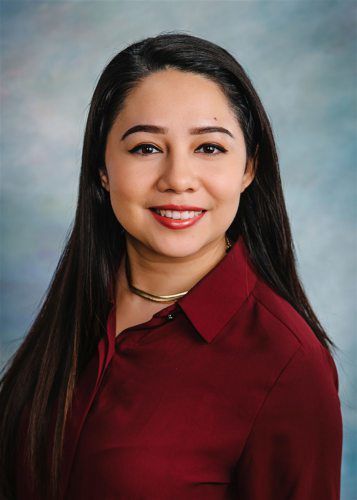Sarah Palmer is an elementary school teacher in Cascade, Iowa — and she is much more.
In addition to educating youth in her rural community, she works to connect minority families — including many immigrants — with resources that can help them thrive. For many newcomers to Cascade, she is a trusted point of contact, and her story exemplifies the need for local connectors who can bridge cultures and help people feel welcome and supported in a new community.
I had the honor of hosting a meeting of the Community Foundation’s Rural Equity Network that featured Palmer as a guest speaker. The story she shared was personal to me. I grew up in a family of immigrants in Palmer’s school district. She taught my younger brother as well as my nieces. I’ve seen firsthand how she and other teachers go above and beyond their classroom duties to ensure that children and families can access resources and live their best lives.
As Palmer illustrated, schools play important roles to newcomers in rural communities. They often are the first institutional contacts for people arriving from other countries or communities where culture is different from rural Iowa. Educators become trusted contacts for newcomers. They help individuals and families find resources that will support them as they settle into an unfamiliar place.
In Palmer’s case, she has connected families who need financial support with funds that can help with expenses from rent to band instruments. About a decade ago, she worked with a lawyer who helped her understand how to apply for Deferred Action for Childhood Arrivals, or DACA. Today, she uses this knowledge to help others in her community apply.
Schools aren’t the only organizations that play such a role. Health care providers, faith institutions and employers can provide crucial support — support that might be the difference between a person or family deciding to stay in or move out of a community.
Take the Community Foundation’s Business Leader Equity Cohort, for example. A couple of years ago, this group of executives convened a panel of minority workers who shared their experiences moving to the Dubuque region and navigating an unfamiliar place and culture. A woman from India shared how she didn’t know how to drive in the snow when she moved to Dubuque, so her work supervisor took the time to teach her.
Such a gesture might seem small, but it can make a big difference to someone who has not yet built a social network in their new home.
While informal networks of local “navigators” are helpful, there also is a need to establish more formal programs that are intentional about building connections between minority communities and resource providers. Mentorship programs can fill this role. In Dubuque, the best example might be the work of the Telegraph Herald’s 2021 First Citizen award recipient, Ernest Jackson. Through his work with the Dubuque Black Men Coalition, he has helped Black youth navigate the community and connect with Black leaders who can provide guidance and support.
Other examples are a mentor working for Northeast Iowa Community College who supports a growing population of Dubuque Community School District students from Guatemala, and a new community connector working with the Unity Point Visiting Nurse Association to support Pacific Islanders in Dubuque.
Communities need more people like Palmer, Jackson and other connectors serving the region’s diversifying population. The more trusted points of contact a person has — and the more regularly they keep in touch — the better their chances of staying in a community, building a life and helping the entire region thrive.


